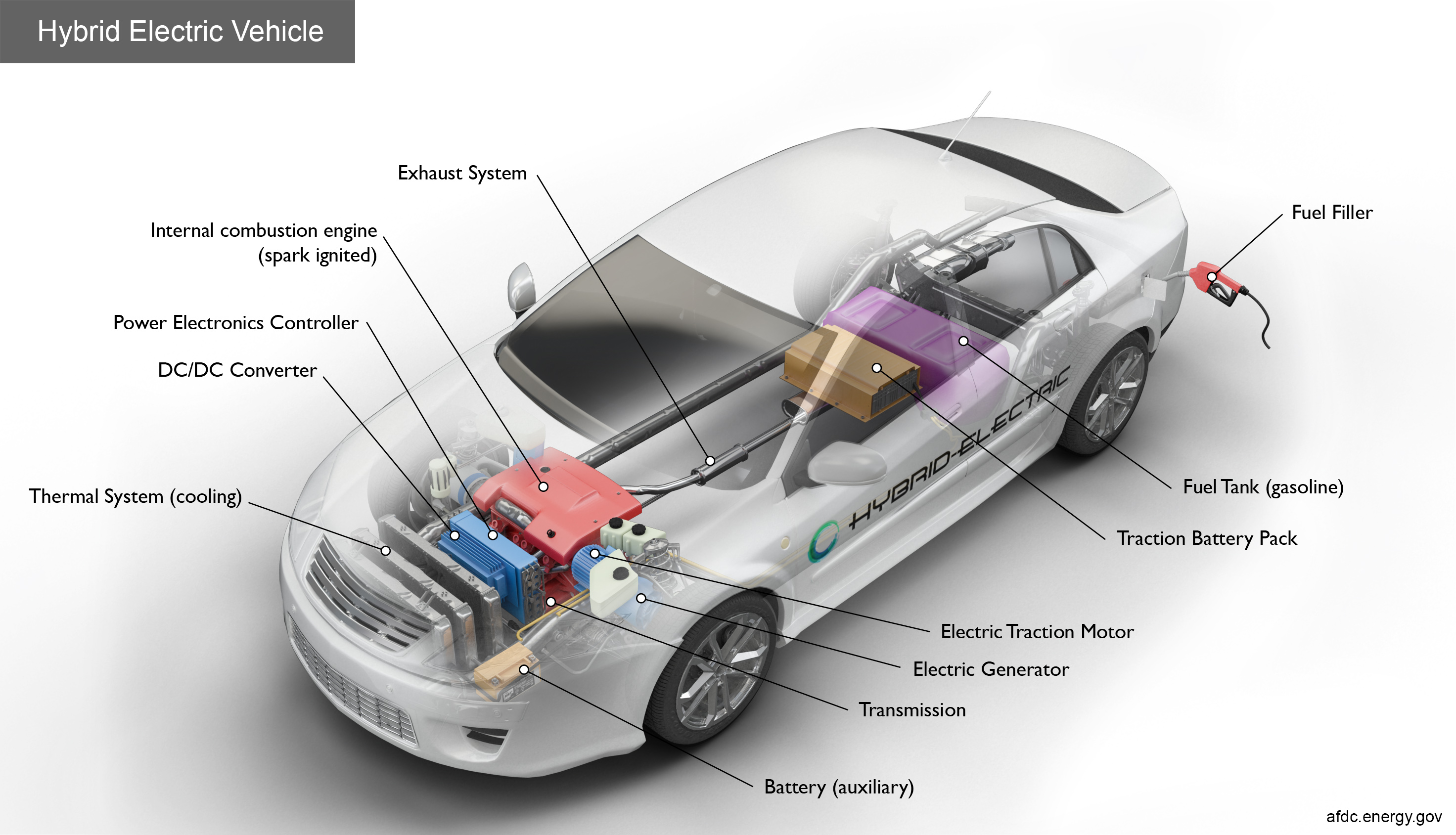Index Surge: Amplifying Your Insights
Stay updated with the latest trends and news across various industries.
Hybrid Cars: The Sneaky Way to Save on Gas and Save the Planet
Discover how hybrid cars can slash your gas bills and benefit the planet! Uncover the hidden savings and eco-friendly advantages today!
How Hybrid Cars Work: A Beginner's Guide to Fuel Efficiency
Hybrid cars are designed to offer improved fuel efficiency by utilizing both a traditional internal combustion engine and an electric motor. The main concept behind these vehicles is to optimize fuel consumption while reducing emissions. When a hybrid vehicle is in motion, it can switch between the combustion engine and electric motor, depending on various factors such as speed, acceleration, and battery charge. This transition not only conserves fuel but also ensures that the car operates efficiently in a range of conditions. Additionally, many hybrid models employ regenerative braking systems that capture energy usually lost in braking and use it to recharge the battery.
Understanding how hybrid cars work can significantly impact your driving experience and fuel economy. Here are some key components that contribute to their efficiency:
- Electric Motor: Assists the engine during acceleration and can power the car at low speeds.
- Internal Combustion Engine: Provides the primary power source for higher speeds and more demanding driving conditions.
- Battery Pack: Stores energy generated from regenerative braking and powers the electric motor.
- Energy Management System: Determines when to use the electric motor, the gasoline engine, or both for optimal performance.
By efficiently managing these components, hybrid cars can achieve significantly better fuel economy compared to traditional gasoline vehicles.

The Environmental Impact of Hybrid Cars: Are They Really Greener?
The rise of hybrid cars has sparked considerable debate regarding their environmental impact. While these vehicles are designed to reduce fuel consumption and lower emissions, the question remains: are they truly greener than traditional gas-powered cars? Hybrid cars operate on a combination of an internal combustion engine and an electric motor, which can lead to improved fuel efficiency and reduced greenhouse gas emissions during operation. However, this environmental benefit must be weighed against the ecological cost of manufacturing the batteries used in these vehicles, which often involves mining for rare minerals and metals, a process that can significantly harm ecosystems.
Moreover, the environmental sustainability of hybrid cars also depends on how the electricity used for charging is generated. In regions where fossil fuels are still the primary source of energy, the benefits of owning a hybrid may be diminished. According to some studies, while hybrid vehicles can reduce emissions compared to conventional cars, they may still contribute to environmental degradation if the lifecycle emissions from battery production and electricity generation are factored in. Consequently, a comprehensive assessment of the environmental impact of hybrid cars encompasses not only their operational efficiency but also the sustainability of the entire production and energy supply chain.
Top 5 Myths About Hybrid Cars: Debunking Common Misconceptions
When it comes to hybrid cars, misconceptions abound. One of the most prevalent myths is that hybrid vehicles are significantly less powerful than traditional gas-powered cars. In reality, many hybrids are equipped with advanced technology that allows for quick acceleration and impressive torque. Manufacturers have designed these vehicles to deliver a balanced performance, combining the efficiency of electric motors with the reliability of internal combustion engines. As a result, hybrids can easily compete with their conventional counterparts in terms of speed and driving experience.
Another common myth is that hybrid cars are only suitable for urban driving. While it's true that hybrids excel in stop-and-go traffic, they are just as efficient on highways and long-distance trips. In fact, many hybrids optimize fuel consumption across various driving conditions, providing excellent mileage whether you're commuting in the city or embarking on a road trip. By debunking these misconceptions, potential buyers can make informed decisions about the practicality and benefits of owning a hybrid vehicle.